Southeast CASC Activities Highlighted in National CASC 2021 Annual Summary
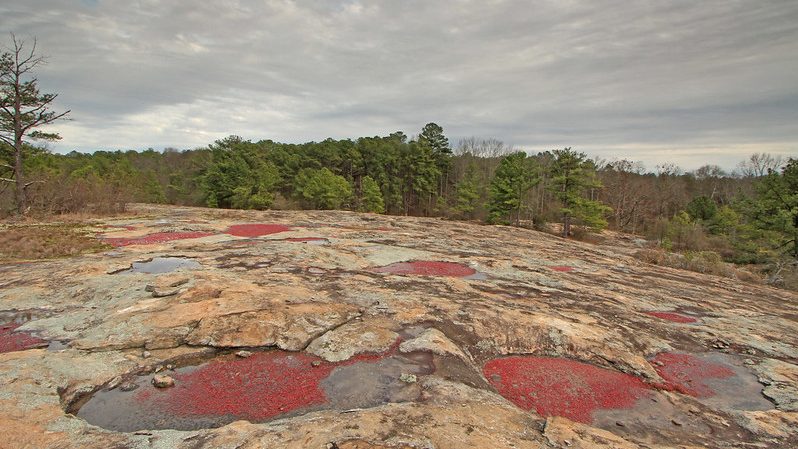
Every year, the National CASC highlights the science-based achievements of the Regional CASC network as part of an Annual CASC Summary. Several projects and activities of the Southeast CASC were featured in the 2021 Annual CASC Summary. Several of the many SE CASC accomplishments during FY21 are highlighted below, along with the 2021 Annual CASC Summary section in which they are featured.
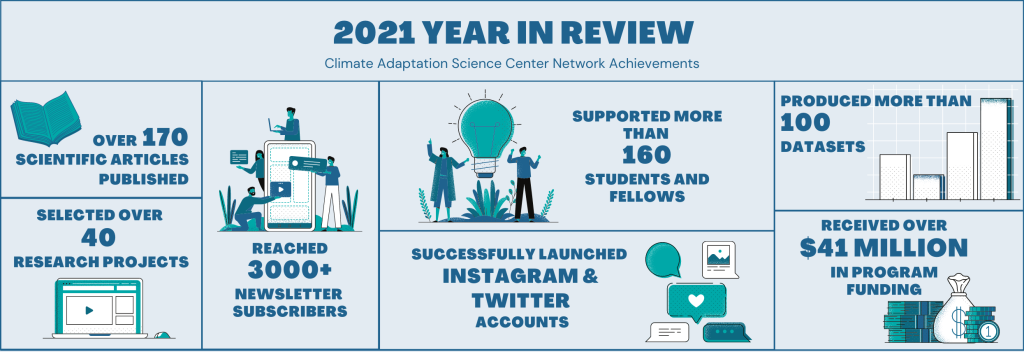
Featured Science: Wildlife, Plants, and Fungi/Fire & Drought
An Ecosystem Approach for Multispecies Conservation:
Southeast CASC supported researchers propose a framework for evaluating species based on an ecosystem approach, rather than a single species approach, that can efficiently inform multiple species status assessments (SSAs) within a region and provide a foundation for transitioning to multispecies SSAs in the future. Learn more.
Projecting Future Shifts in Fire Regimes:
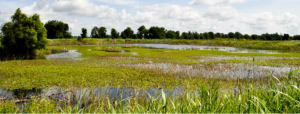
A team including Southeast CASC researchers evaluated climate forcing on fire frequency and an ensemble of climate models to develop projections of end-of-the-century fire probabilities for the conterminous U.S. Temperature sensors provided relatable, place-based information for the fire management community about potential changes in regional climate regimes and uncertainties related to future temperature and precipitation, aiding adaptation planning. Learn more.
Data & Tools:
Open-Access Package Supports Spatial Conservation Planning:
Making decisions about the best design of conservation area lands in the face of climate change uncertainties is a high-risk challenge for resource managers. Southeast CASC research ecologist Mitch Eaton contributed to the development of SiteOpt, a user-friendly, open-access R-package. The tool supports goals such as reserve design by considering multiple objectives, uncertainty, risk, and constraints (e.g., connectivity, budget) and identifying globally optimal solutions for spatial designs, resource allocations, species selection, and other portfolio decisions. Learn more. R-package code.
Resilience:
Examining the Influence of Environmental Factors on Amphibian Populations in Puerto Rico:
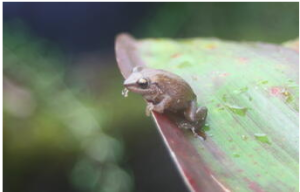
A publication by Southeast CASC researchers discusses the impact of physical and habitat factors on four coqui frog species. These results may be used to characterize the range of environmental conditions that influence the distribution of coqui populations and indicate which habitats might act as climate refugia for these species as forests in Puerto Rico become warmer and drier in the face of climate change. Learn more.
Indigenous Peoples:
CASC Tribal Liaison Featured in USET Video Celebrating Native American Heritage Month:
The Northeast and Southeast CASC Tribal Liaison Casey Thornbrugh is featured in a video discussing the significance of Native American Heritage Month in a United South and Eastern Tribes (USET) video. Learn more. Watch the video.
Partner Collaborations:
Partner Collaborations Support Climate Change Adaptation for Coastal National Wildlife Refuges:
A team of Southeast CASC researchers summarize their activities, outcomes, and lessons learned from a three-year project with the Cape Romain National Wildlife Refuge (NWR) and local partners in the surrounding South Carolina Lowcountry to help the region adapt to climate change. They summarize these efforts with insights and considerations for the Cape Romain Partnership for Coastal Protection to continue to engage stakeholders in effective adaptation planning. Learn more.
Fellows:
Informing Prescribed Fire Management Strategies:
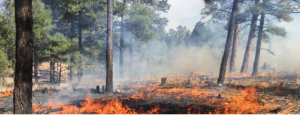
Former Southeast CASC Global Change Fellow Kate Jones is utilizing geospatial modeling and data visualization to better understand how management actions and climate change will affect smoke dispersal from prescribed burns in western North Carolina. Working with natural resource managers, Jones seeks to design an online tool that can help “managers to explore community smoke exposure from prescribed fire under varying management and climate scenarios.” Learn more.
- Categories:
